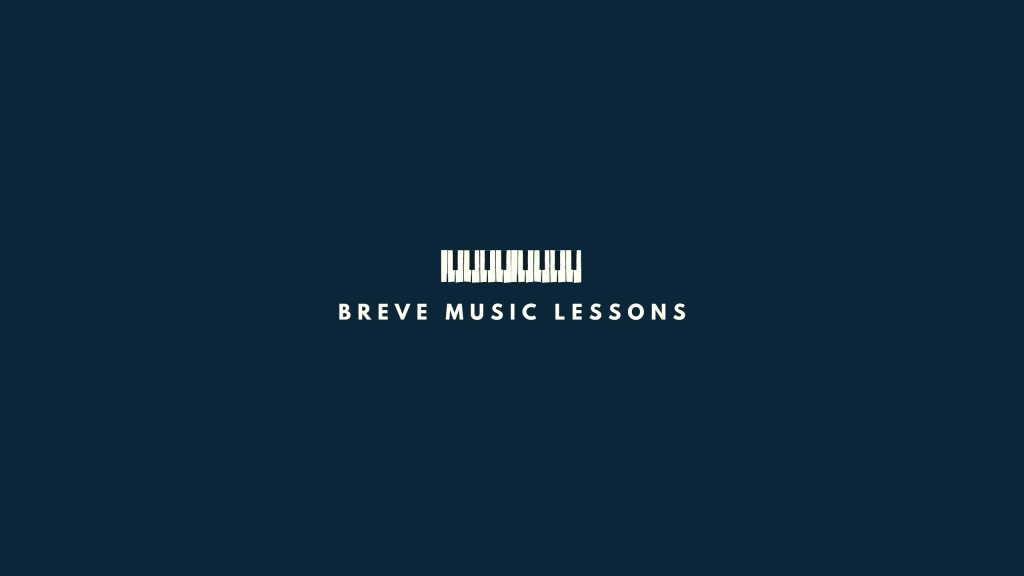Table of Contents
Is AI Hurting The Music Industry? Exploring AI Music and Its Impact on Real Artists
The advent of artificial intelligence (AI) has sparked a revolution across various sectors, and the music industry is no exception. As AI technology continues to evolve, its integration into music production and creation raises questions about its impact on human musicians and the authenticity of music itself. This article discusses how AI is transforming the music industry, the ethical concerns surrounding AI-generated music, and the potential benefits and challenges that come with the use of AI in music production.

How is AI Transforming the Music Industry?
What are the latest AI tools in music production?
In recent years, the music industry has witnessed a surge in the development of AI tools designed to assist in music production. These tools range from AI music generators that can create new melodies and harmonies to sophisticated software that analyzes trends in music consumption. For instance, Amper Music is an AI-powered tool for creating music, especially for content creators, offering pre-composed styles and sounds. AIVA uses AI to compose original pieces, suited for film scoring, video games, and advertising. Endlesss is a collaborative music creation platform allowing real-time improvisation. Orb Composer is a creative AI assistant that helps with complex compositions in various musical genres. Lastly, Landr is an AI-driven mastering tool that automates the final production stage.
How are industry stakeholders adapting to AI in music?
Industry stakeholders, including record labels, producers, and artists, are increasingly recognizing the potential of AI in music. Many are adapting their strategies to incorporate AI music tools into their workflows. For example, record labels are using AI to analyze listener data on platforms like Spotify and TikTok, allowing them to identify emerging trends and tailor their marketing strategies accordingly. Furthermore, some human musicians are collaborating with AI to enhance their creative processes, using AI-generated music as a foundation to build upon. This collaborative approach not only broadens the scope of music creation but also fosters a new relationship between technology and artistry, where AI is seen as a partner rather than a competitor.
What role does AI play in new musical creativity?
AI plays a significant role in fostering new musical creativity by providing artists with innovative tools to explore uncharted territories in sound. The generative capabilities of AI can inspire human musicians to think outside the box, leading to the creation of unique compositions that blend traditional elements with modern influences. For instance, AI can analyze vast libraries of existing music to identify patterns and suggest novel combinations that artists may not have considered. This synergy between AI and human creativity can result in groundbreaking music that pushes the boundaries of genre and style, ultimately enriching the music landscape.
Are AI-Generated Music Projects Threatening Real Artists?
What are the ethical concerns surrounding AI music?
The rise of AI-generated music has sparked ethical concerns regarding the authenticity and ownership of creative works. Critics argue that music created by AI lacks the emotional depth and personal touch that human artists bring to their compositions. Additionally, there are questions about copyright and intellectual property rights when it comes to AI-generated music. If an AI tool creates a pop song that becomes a hit, who owns the rights to that music? These ethical dilemmas challenge the traditional music business model and raise important questions about the future of artistic expression in an age dominated by technology.
How does music made by AI differ from music made by humans?
Music made by AI often differs from music created by human artists in terms of emotional resonance and contextual understanding. While AI can analyze patterns and replicate styles, it lacks the lived experiences and emotional nuances that inform human creativity. For instance, a song like “Heart on My Sleeve” by a human composer may convey deep feelings of love and loss, drawing from personal experiences that resonate with listeners on a profound level. In contrast, AI-generated music may excel in technical proficiency but often falls short in conveying the same emotional depth, leading some to question its place in the music industry.
Can AI music tools enhance or hinder human creativity?
The impact of AI music tools on human creativity is a double-edged sword. On one hand, these tools can enhance creativity by providing artists with new ways to experiment and innovate. For example, AI can assist musicians in generating ideas, suggesting chord progressions, or even creating entire tracks that serve as a foundation for further development. On the other hand, there is a concern that over-reliance on AI could hinder the creative process, leading to a homogenization of music where unique voices are drowned out by algorithm-driven trends. Striking a balance between utilizing AI for inspiration while maintaining the authenticity of human artistry is crucial for the future of music creation.
What Are the Benefits of Using AI in Music Production?
How can AI music generators assist musicians?
AI music generators offer a plethora of benefits for musicians, particularly in the realm of music production. These tools can streamline the creative process by providing instant access to a wide range of sounds and styles. For instance, a composer looking to create electronic music can use AI to generate beats and melodies that align with their vision, saving time and effort in the initial stages of production. Moreover, AI can analyze existing tracks to suggest improvements or variations, allowing artists to refine their work more efficiently. This assistance can be particularly valuable for emerging artists who may lack the resources or experience to navigate the complexities of music production.
What are the advantages of AI in music creation?
The advantages of AI in music creation extend beyond mere efficiency. AI can facilitate collaboration among artists by providing a platform for sharing and remixing AI-generated music. This collaborative environment encourages experimentation and innovation, leading to the emergence of new musical styles and genres. Additionally, AI can help democratize music creation by making high-quality production tools accessible to a broader audience. As more individuals gain the ability to create music using AI, the diversity of voices and perspectives in the industry is likely to expand, enriching the overall music landscape.
How does AI enable new music projects?
AI enables new music projects by providing artists with the tools and resources needed to explore uncharted creative territories. With the ability to generate unique sounds and compositions, AI can inspire musicians to venture into genres they may not have previously considered. Furthermore, AI can assist in the logistical aspects of music production, such as scheduling studio time or managing collaborations, allowing artists to focus more on their creative endeavors. As a result, AI is not only transforming the way music is made but also empowering artists to pursue ambitious projects that push the boundaries of their creativity.
What Challenges Does the Music Industry Face with AI?
How is the use of AI affecting traditional music business models?
The integration of AI into the music industry poses significant challenges to traditional business models. As AI-generated music becomes more prevalent, the lines between human and machine-made music blur, leading to potential disruptions in how music is marketed and monetized. Record labels may need to rethink their strategies for signing and promoting artists, as the demand for AI-generated content grows. Additionally, the rise of AI music tools could lead to a decrease in demand for certain roles within the industry, such as producers and sound engineers, raising concerns about job security for human musicians and industry professionals.
What are the potential downsides of AI in music production?
While AI offers numerous benefits, there are potential downsides to its use in music production. One major concern is the risk of homogenization, where AI-generated music lacks the diversity and uniqueness that human artists bring to their work. This could lead to a saturation of similar-sounding tracks, diminishing the overall quality of music available to listeners. Additionally, the reliance on AI tools may stifle the development of traditional music skills among new artists, as they may become overly dependent on technology for their creative processes. Balancing the use of AI with the cultivation of human artistry is essential to ensure the continued evolution of music.
How can the music industry balance AI and human creativity?
To balance AI and human creativity, the music industry must embrace a collaborative approach that values both technological innovation and artistic expression. This can be achieved by encouraging artists to use AI as a tool for inspiration rather than a replacement for their creativity. Educational programs that teach musicians how to effectively integrate AI into their workflows can also foster a healthy relationship between technology and artistry. By promoting a culture of collaboration and experimentation, the music industry can harness the power of AI while preserving the authenticity and emotional depth that human artists bring to their work.
What Does the Future Hold for AI in the Music Industry?
How will AI shape the landscape of music in 2024 and beyond?
As we move wrap up this year, AI is playing an increasingly influential role in shaping the landscape of music. The continued advancement of AI technology will likely lead to more sophisticated music tools that can analyze listener preferences and generate personalized playlists. This could enhance the way we listen to music, creating a more tailored experience for audiences. Additionally, as AI-generated music gains traction, we may see a shift in how music is consumed, with listeners becoming more open to exploring tracks created by machines alongside those made by human artists.
What innovations can we expect from AI music tools?
Innovations in AI music tools are expected to revolutionize the way music is created and experienced. We may see the emergence of AI systems capable of composing entire albums, complete with lyrics and arrangements, tailored to specific genres or themes. Furthermore, advancements in machine learning could enable AI to analyze emotional responses to music, allowing for the creation of tracks that resonate deeply with listeners. As these innovations unfold, the potential for collaboration between AI and human musicians will expand, leading to new forms of artistic expression that challenge our understanding of creativity.
Will AI music become mainstream or remain a niche?
The future of AI music remains uncertain, with the potential to either become mainstream or remain a niche within the broader music industry. As AI technology continues to improve and gain acceptance among artists and audiences alike, it is likely that AI-generated music will find its place in popular culture. However, the emotional connection that listeners have with music created by human artists may prevent AI music from fully replacing traditional forms of expression. Ultimately, the coexistence of AI-generated and human-created music could lead to a richer and more diverse musical landscape, where both forms are appreciated for their unique contributions to the art of music.
So, is AI hurting the music industry?
In short, yes and no. There are some pros and also some cons. Hopefully, artists can find ways to integrate AI into their workflow and/or find ways to highlight their individual creativity separate from AI.
Additional Reading
More blog posts can be found here. Consider following Breve Music Lessons on Facebook.
